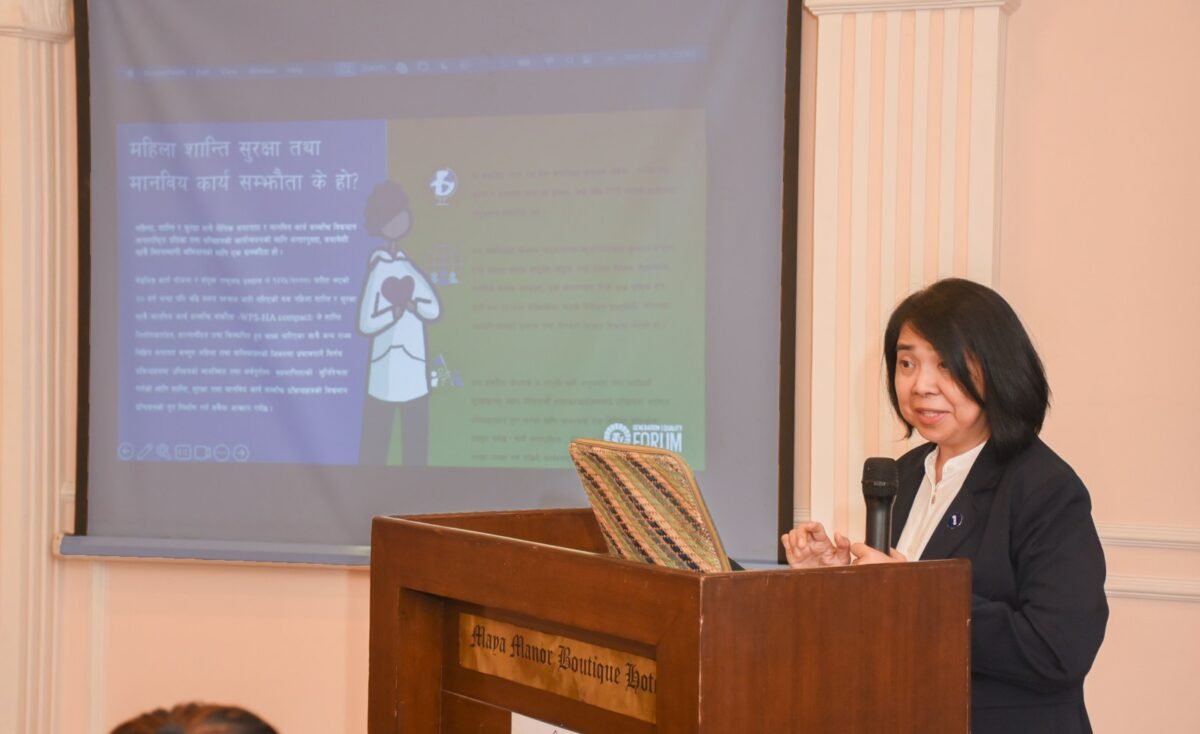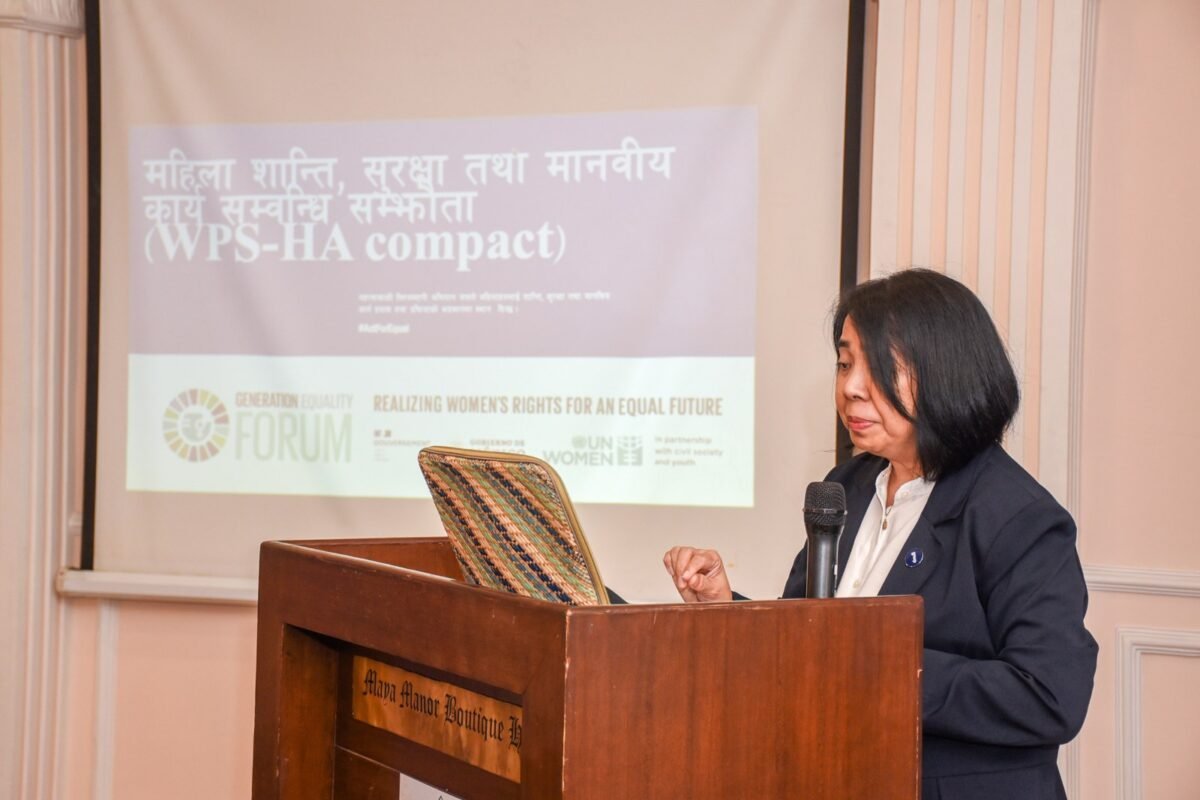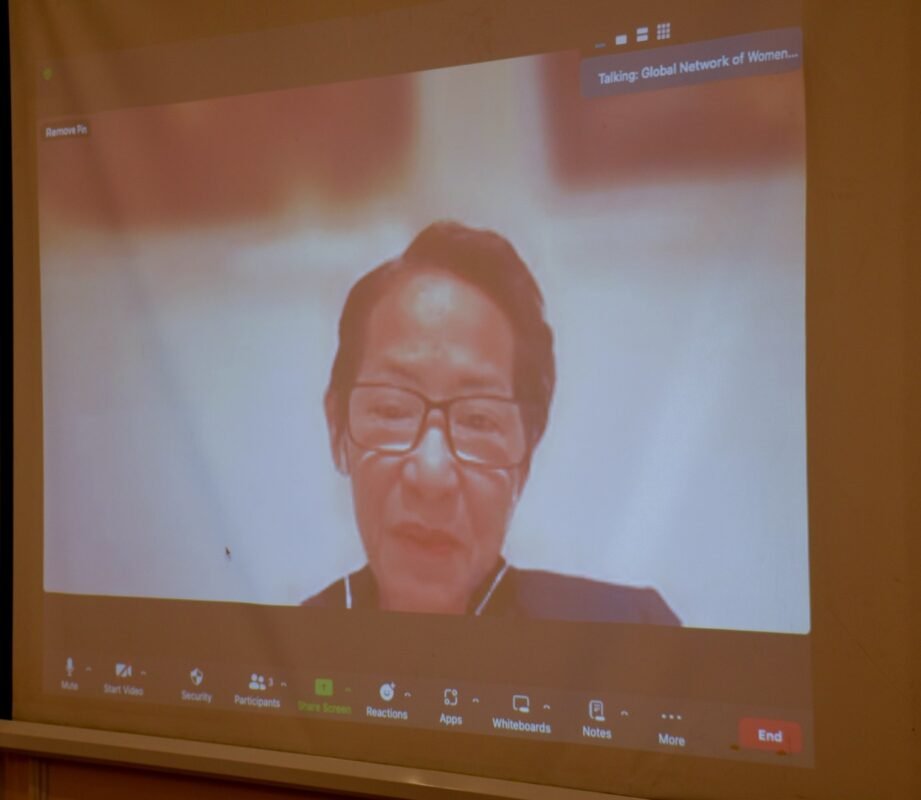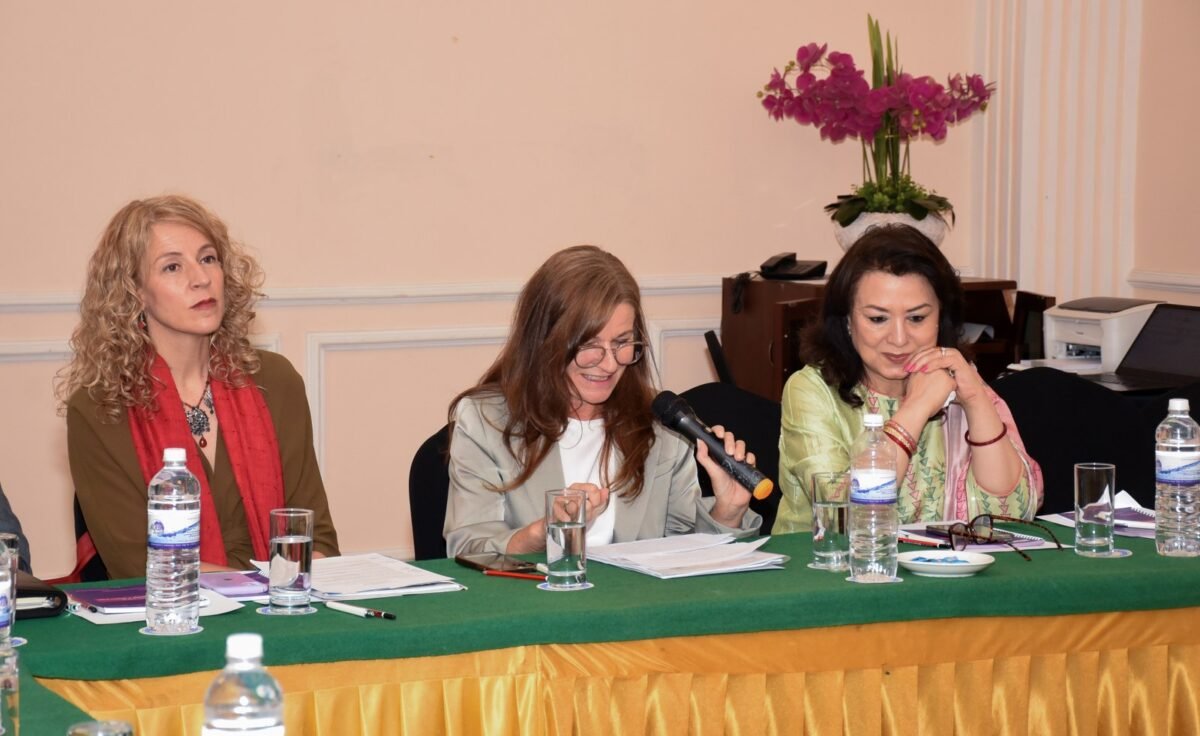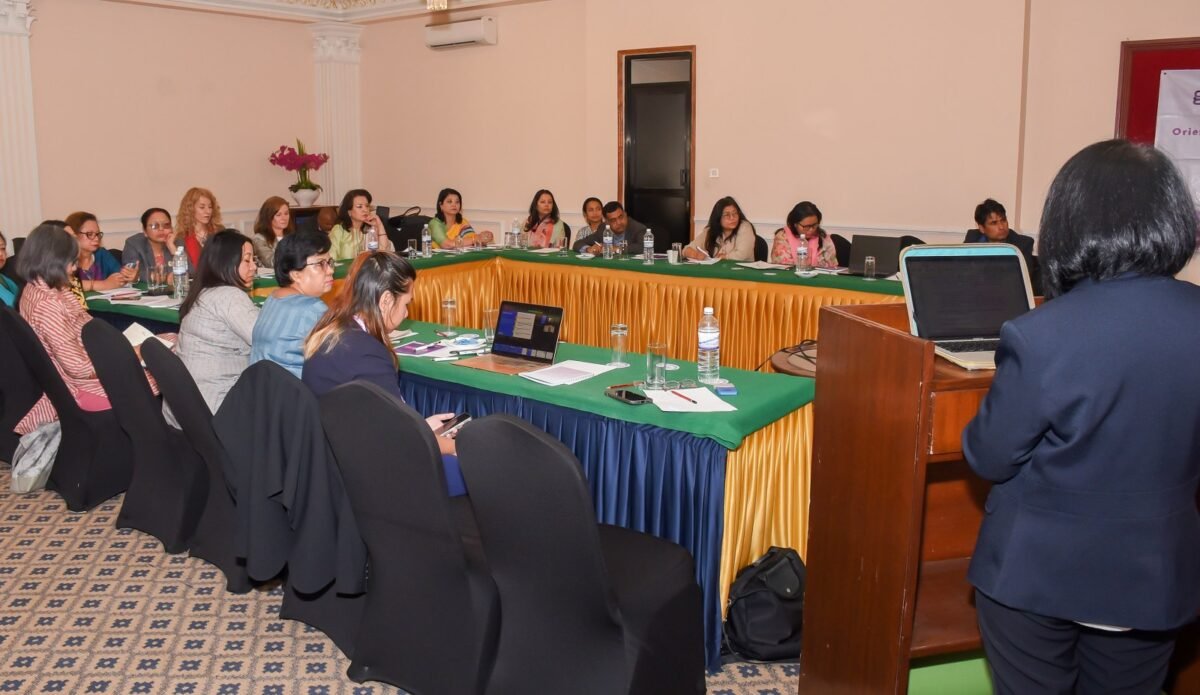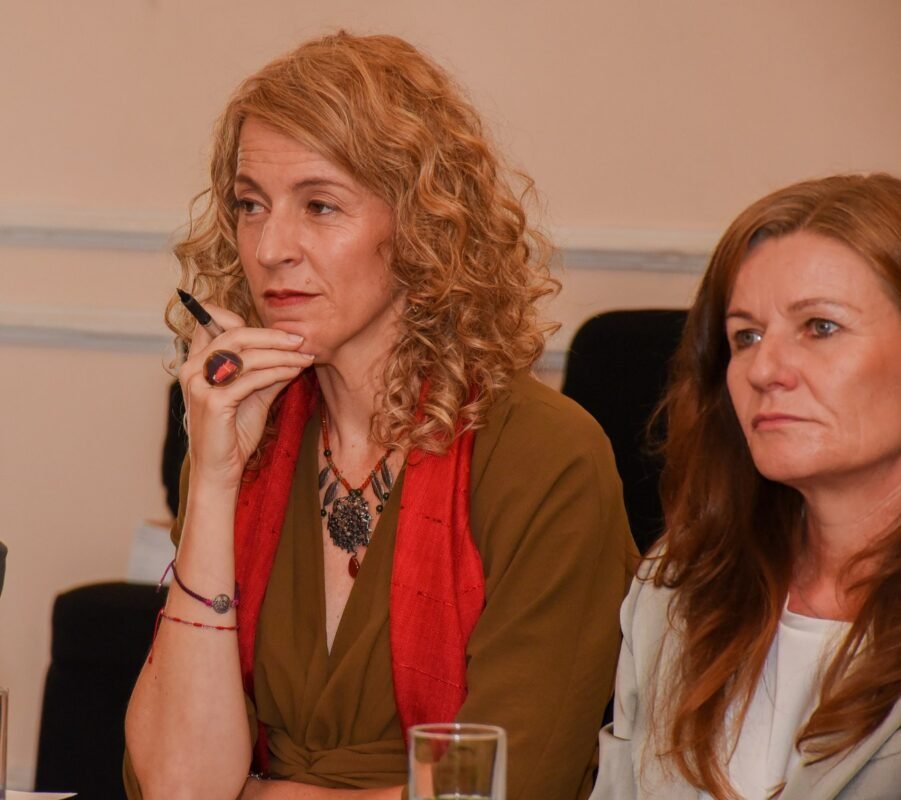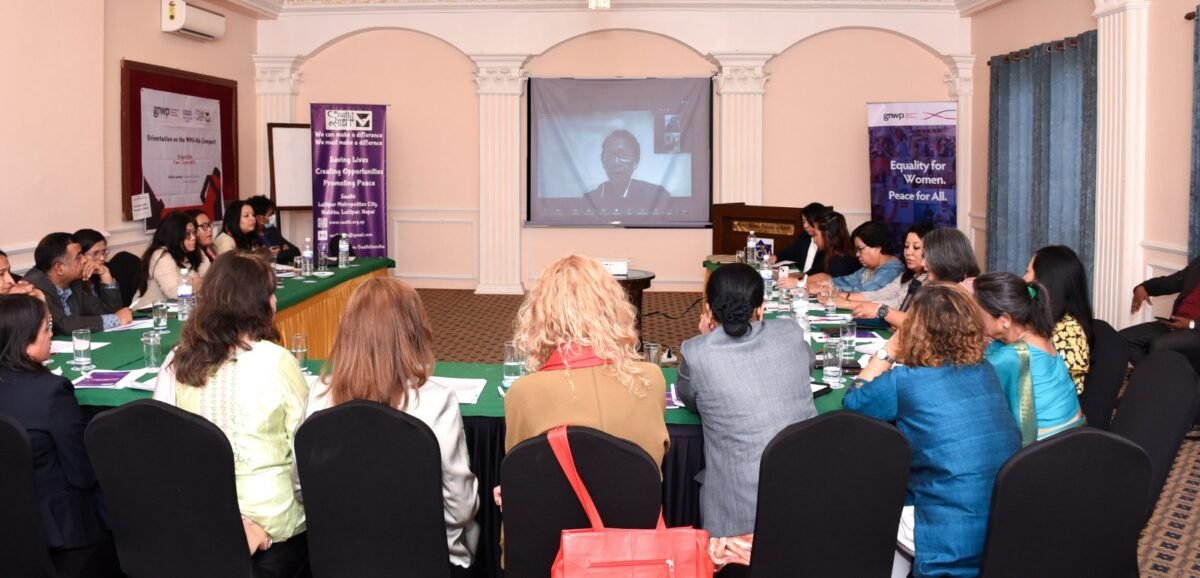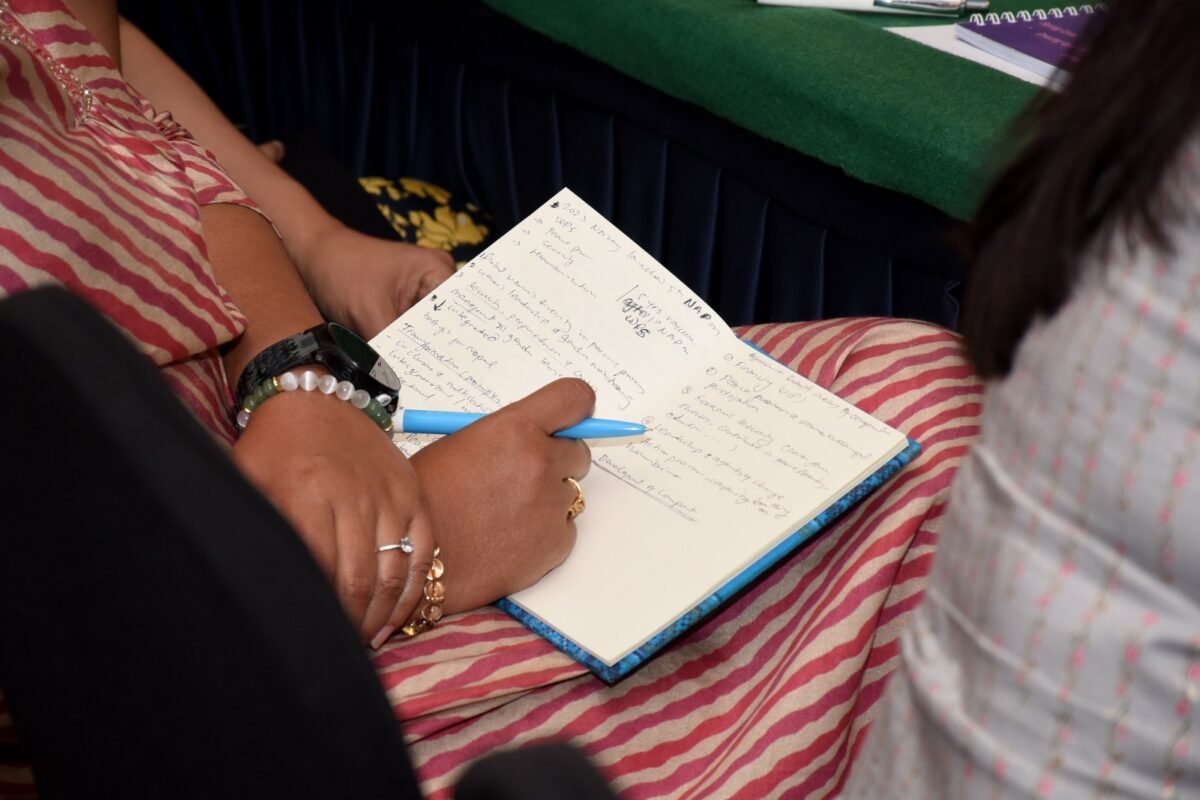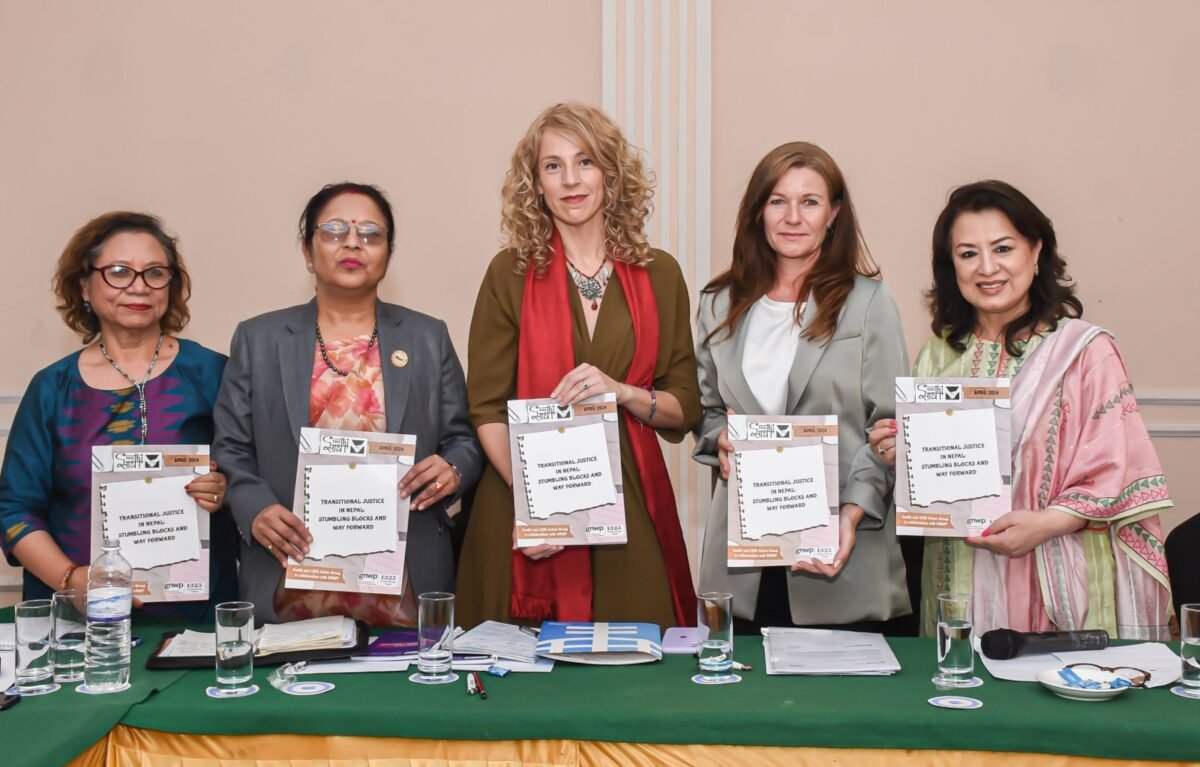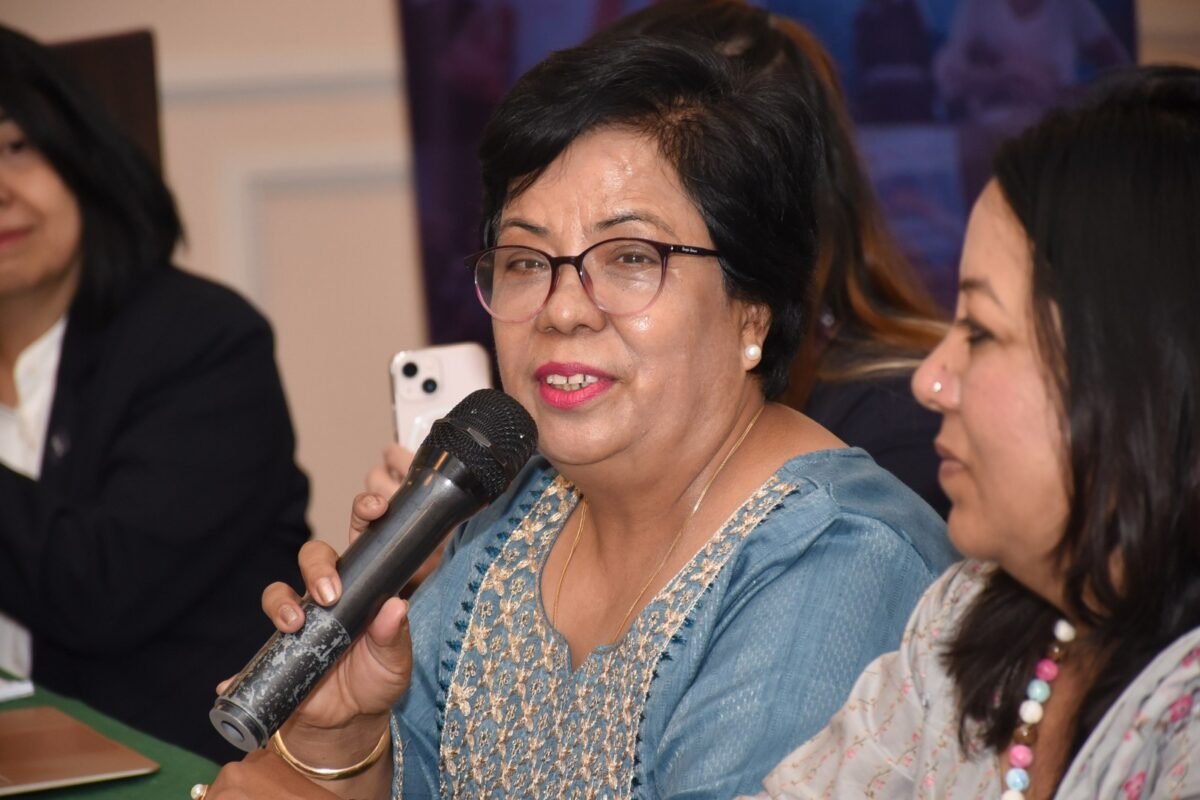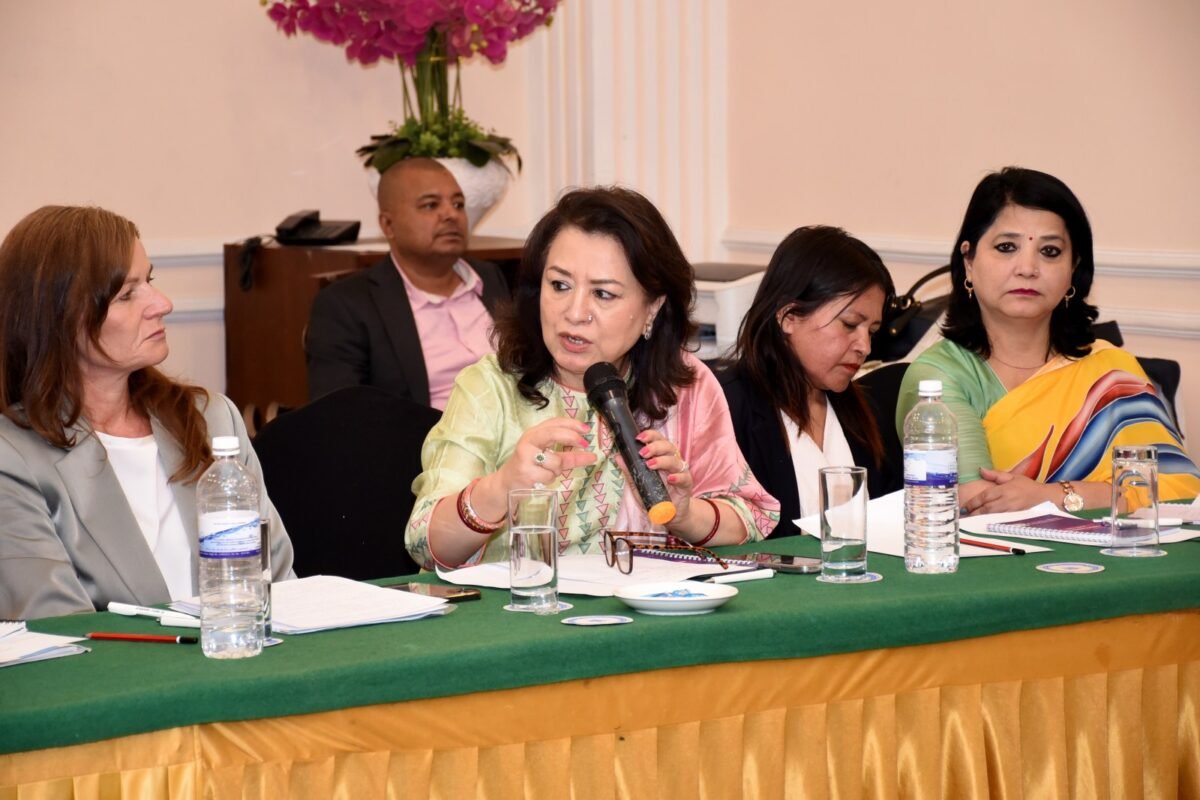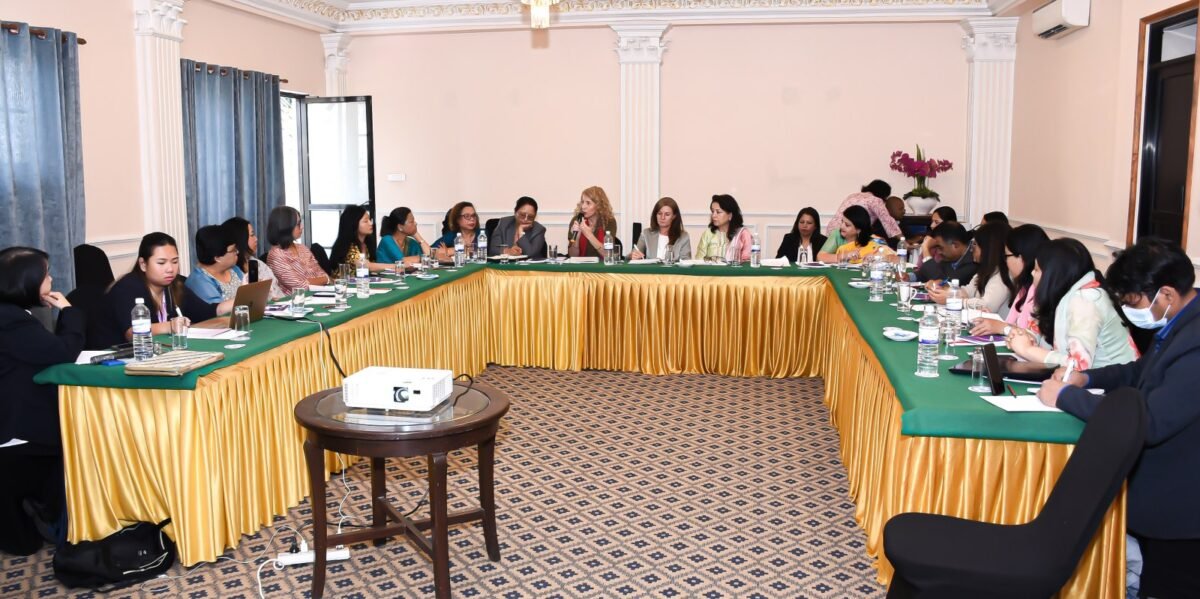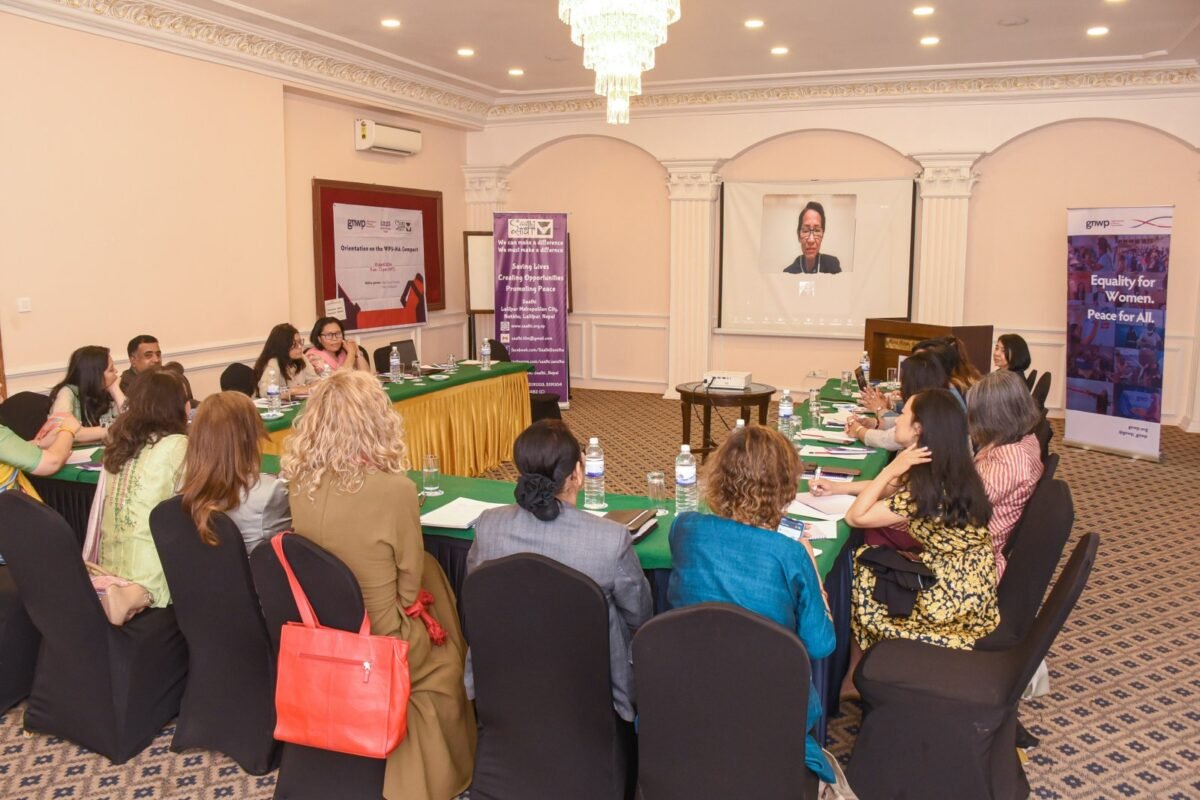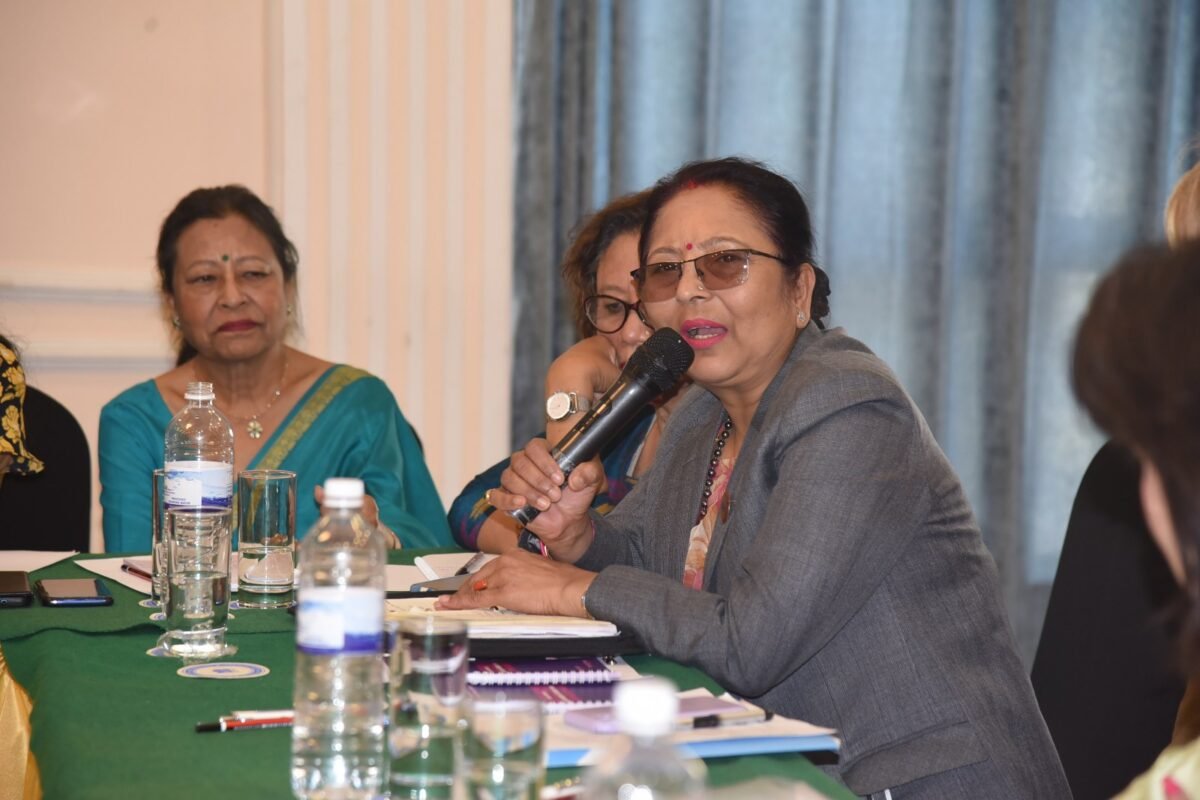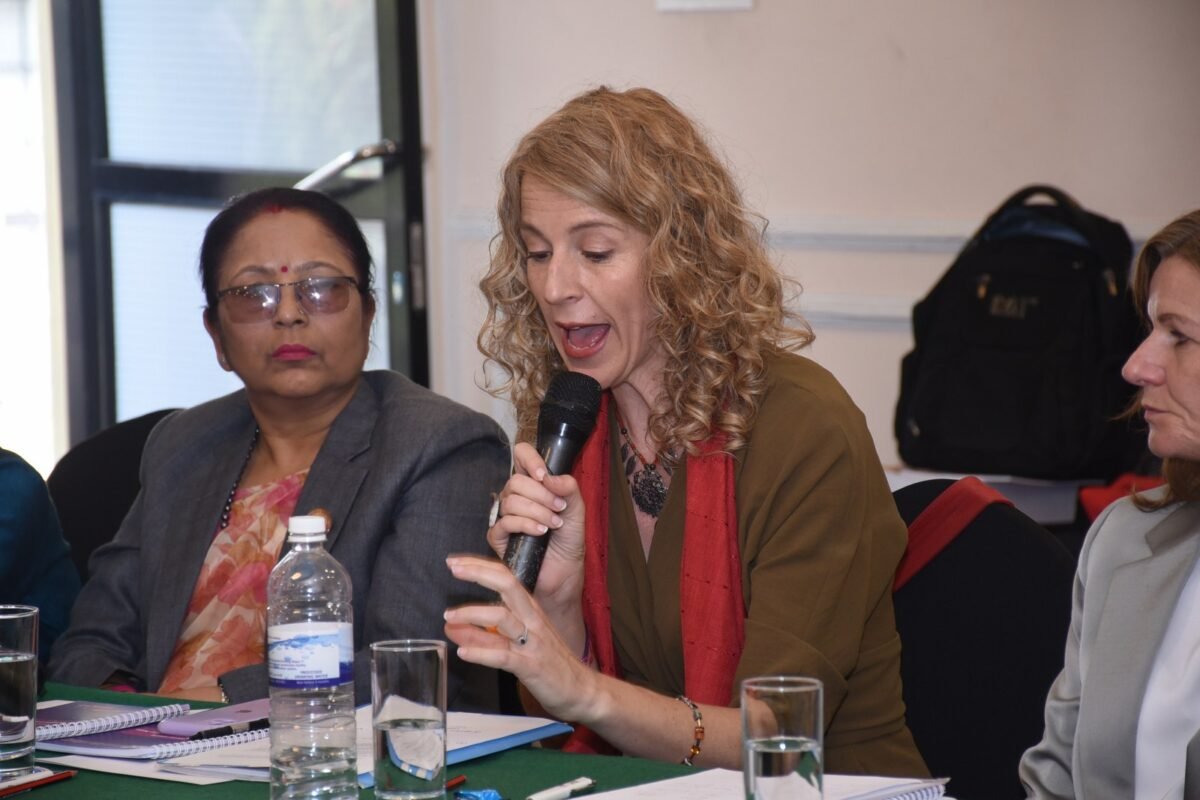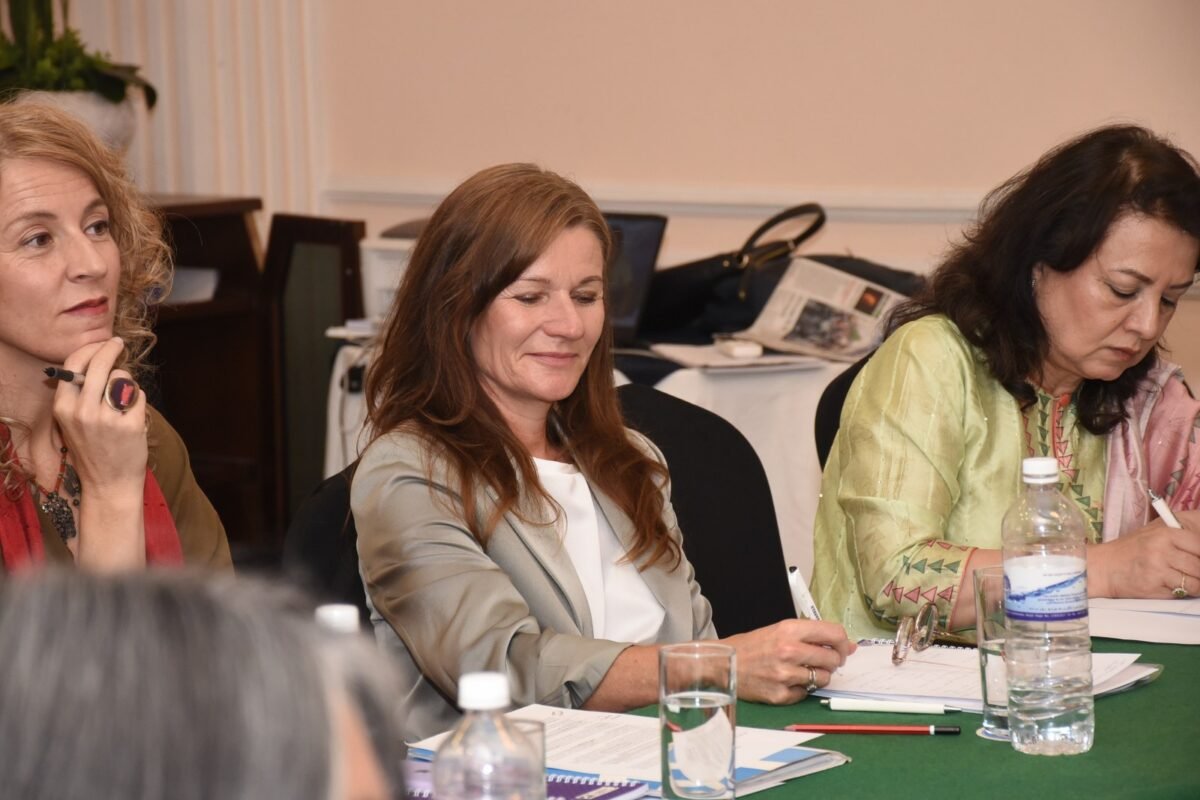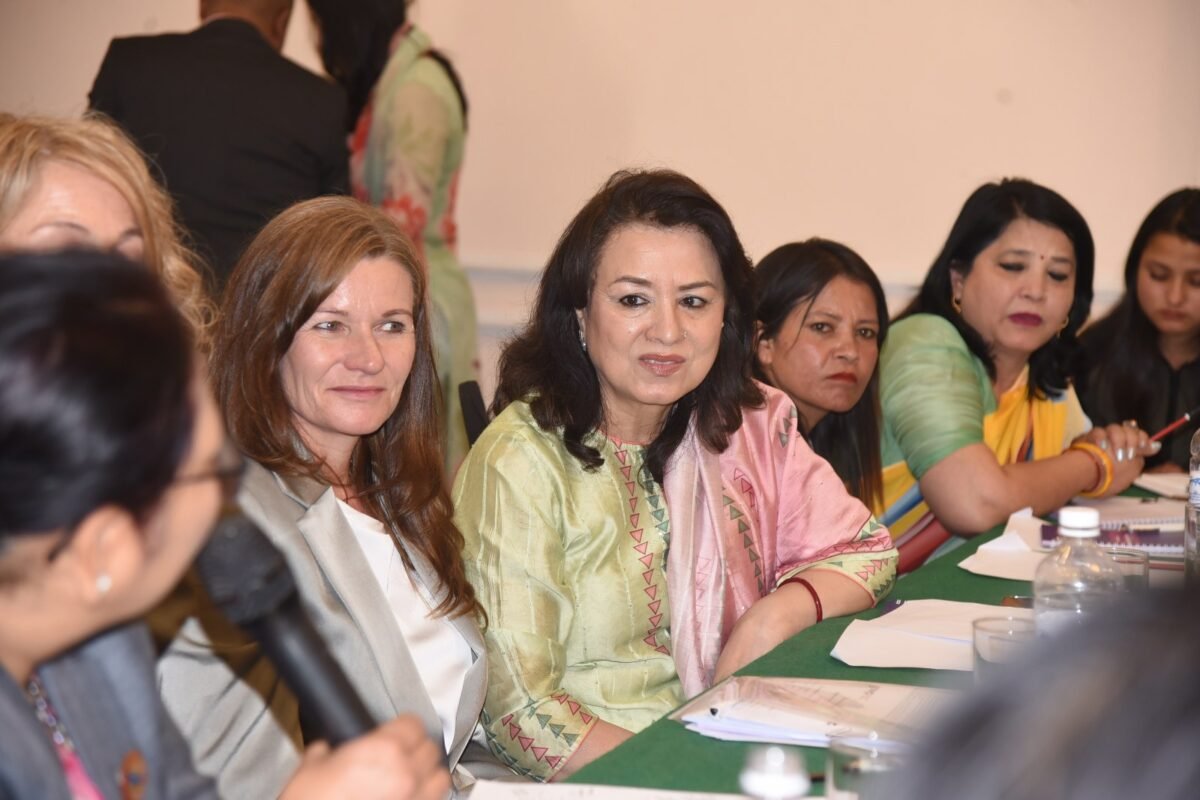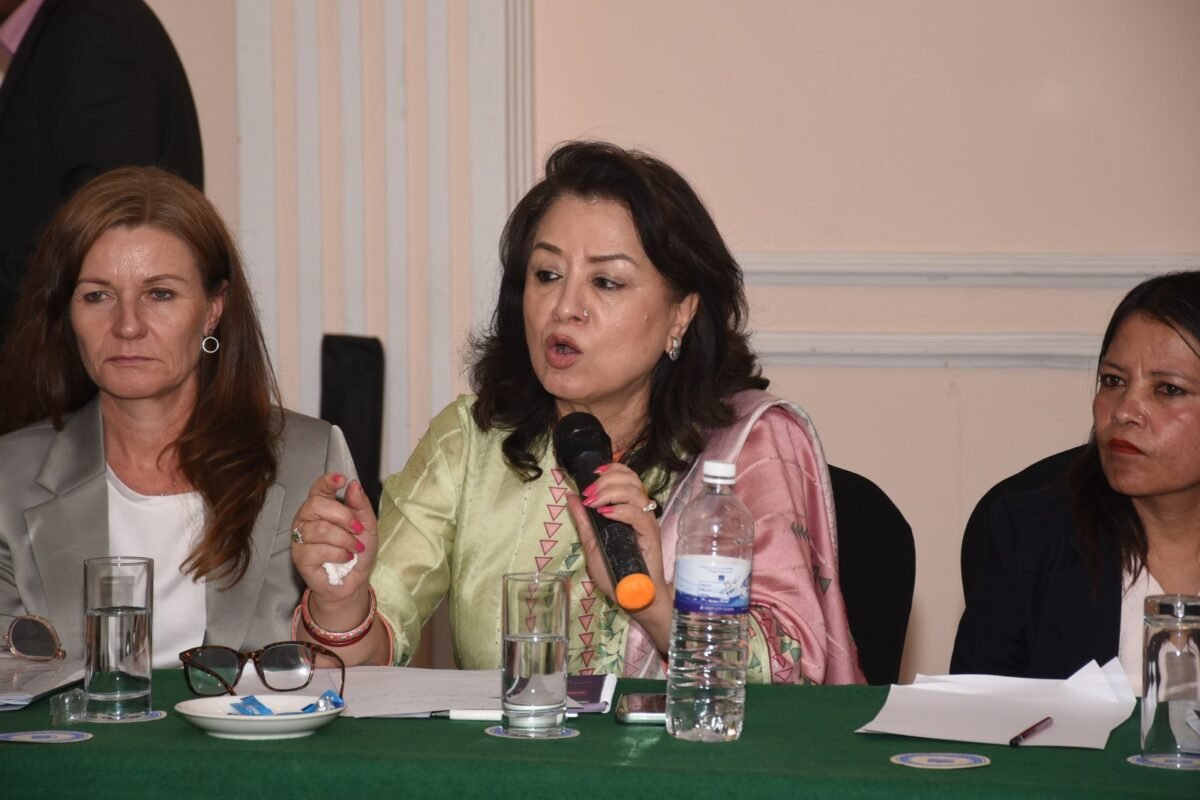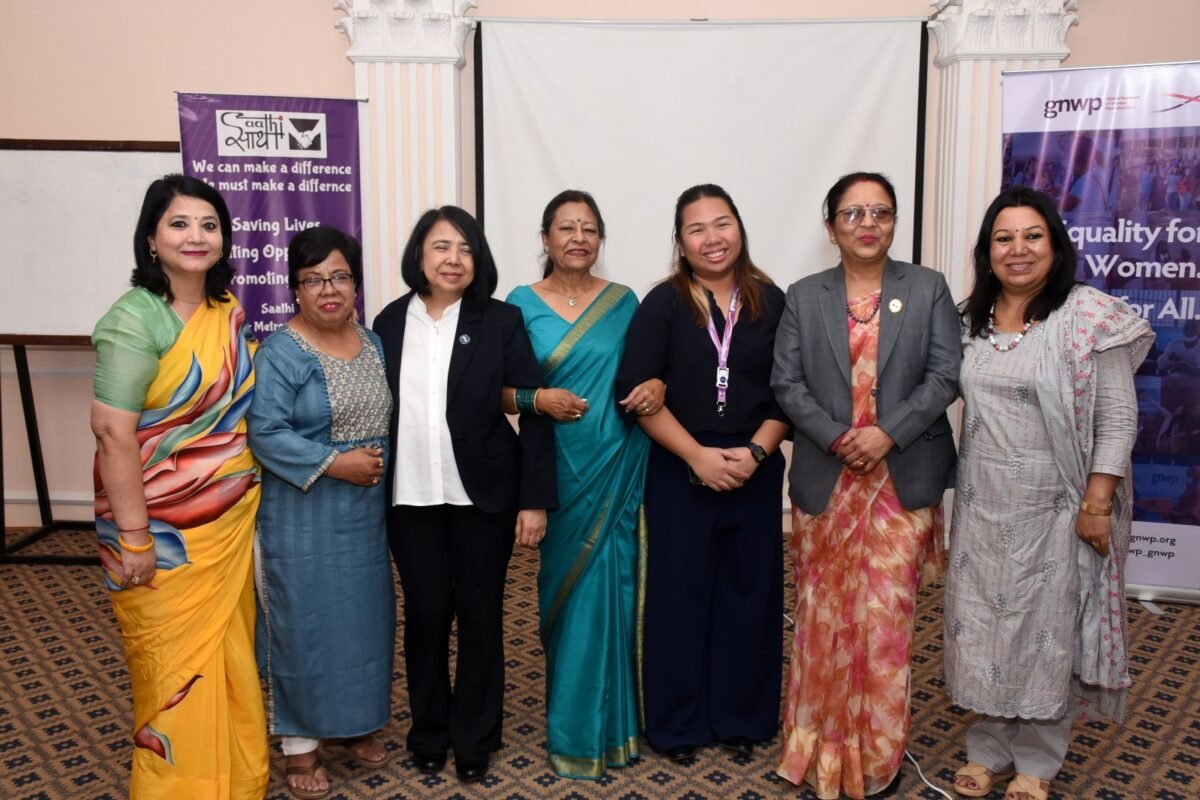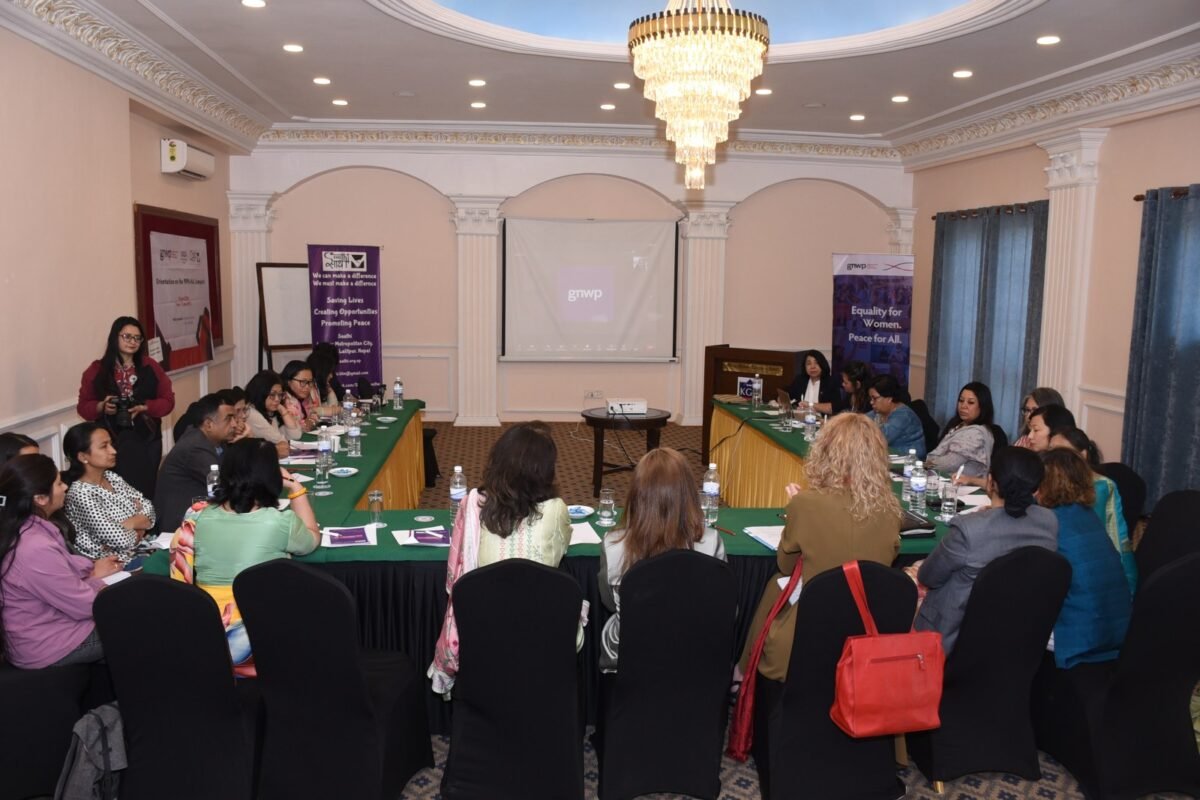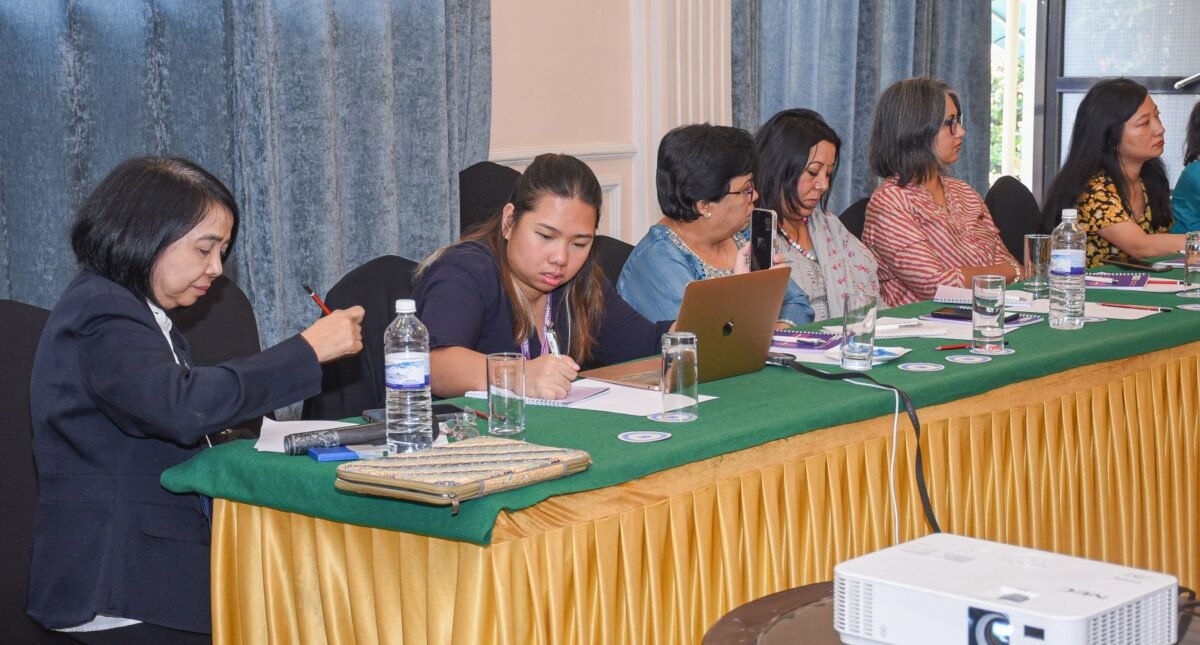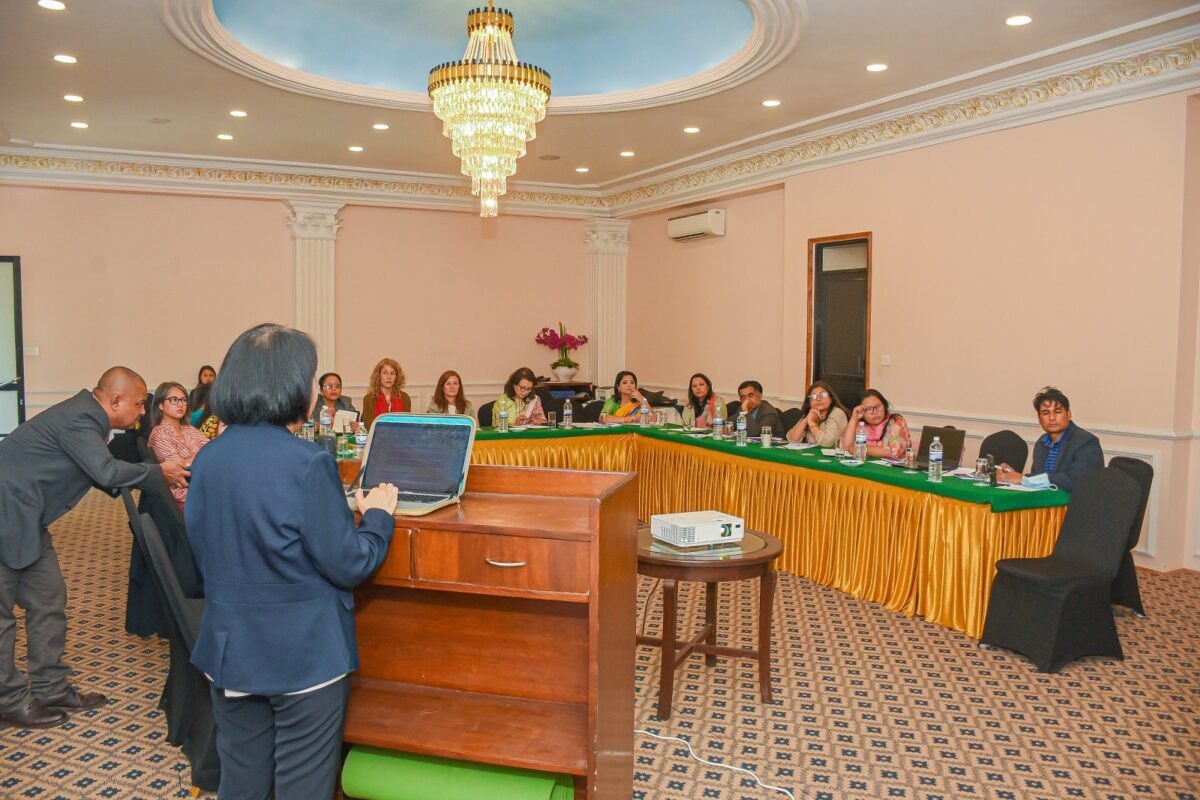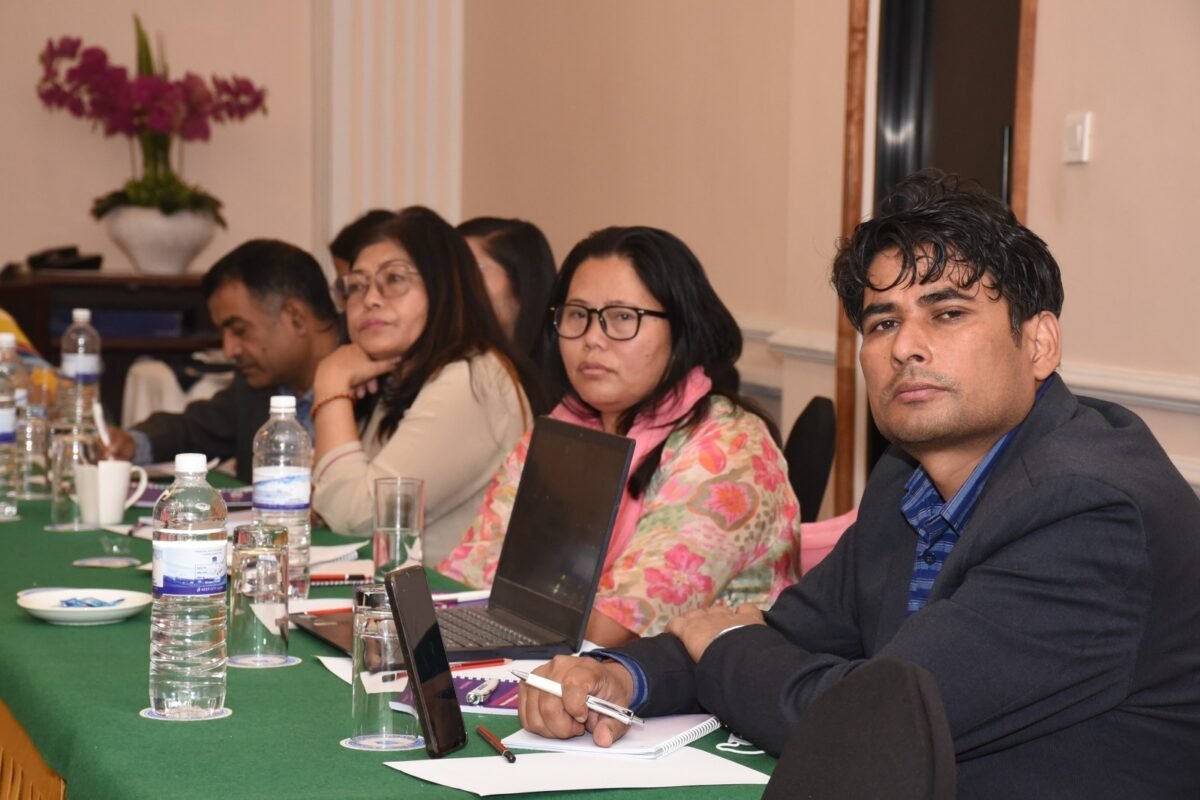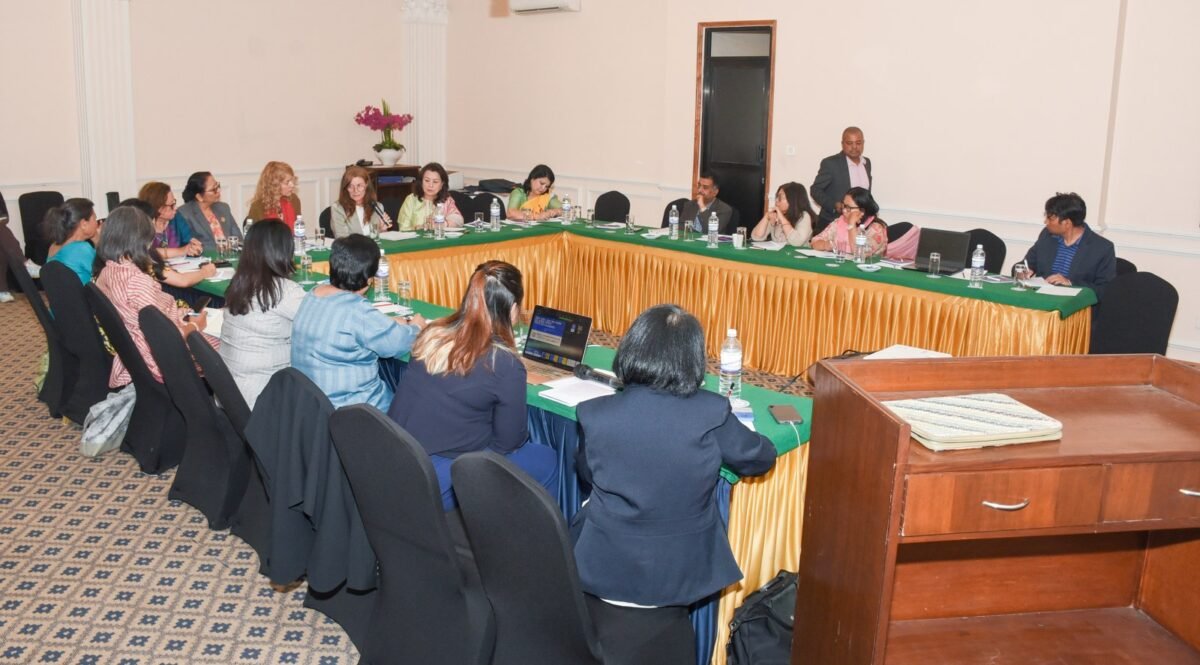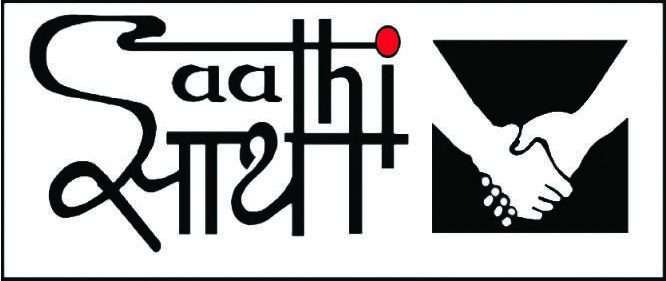April 10, 2024, Kathmandu – Saathi, in collaboration with the Global Network of Women Peacebuilders (GNWP), organized an orientation program on Women, Peace, and Security and Humanitarian Action (WPS-HA) Compact in Kathmandu. The event, attended by around 30 participants representing civil society organizations, foreign embassies, media, and independent commissions, aimed to foster better synergy, coordination, and commitment for the empowerment of women and girls affected by conflict and crises.
Bandana Rana, UN CEDAW Committee Member, highlighted the transformative action plan of the compact initiated by the Generation Equality Forum in 2021. She emphasized its collaborative approach to achieve gender equality, stating, “It’s not a treaty; it’s just a compact that one needs to sign.”
Kamala Parajuli, Chair of the National Women’s Commission, expressed dissatisfaction over the government’s neglect of WPS issues, urging continued pressure on the government for effective implementation.
Kristine Hauge Storholt, Deputy Head of Mission at the Embassy of Norway, reiterated her government’s commitment to ensuring women’s equal participation in conflict prevention and peacebuilding, emphasizing collective learning and shared implementation experiences across countries.
Jasmin Nario-Galace, Senior Program Director of GNWP, provided orientation on the compact, stressing the importance of addressing exclusion, discrimination, and structural inequality hindering women’s rights.
Patricia Fernandez-Pacheco, country representative of UN Women Nepal, clarified that the new compact would complement existing normative frameworks and serve as a coalition-building framework.
Mavic Cabrera-Balleza, Founder and CEO of GNWP, emphasized the importance of government signatories to the compact, highlighting its self-monitoring procedures and instrumental role in advancing the WPS agenda.
The WPS-HA Compact, co-chaired by Norway and GNWP, with UN Women serving as the secretariat, aims to integrate and strengthen synergies between women’s participation in peacebuilding and humanitarian action. With over 200 signatories, including UN member states, agencies, civil society organizations, and private sectors, the compact seeks to create a coordinated and comprehensive approach to address the challenges faced by women and girls in conflict-affected and humanitarian settings.
